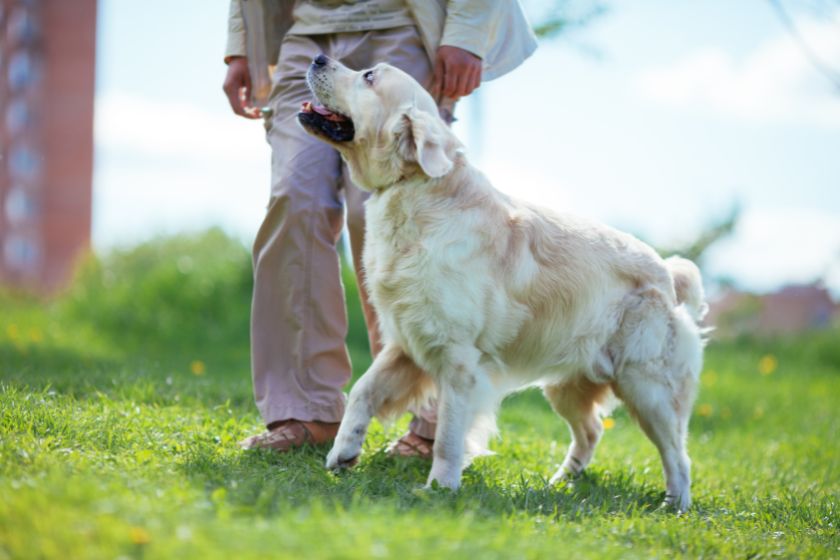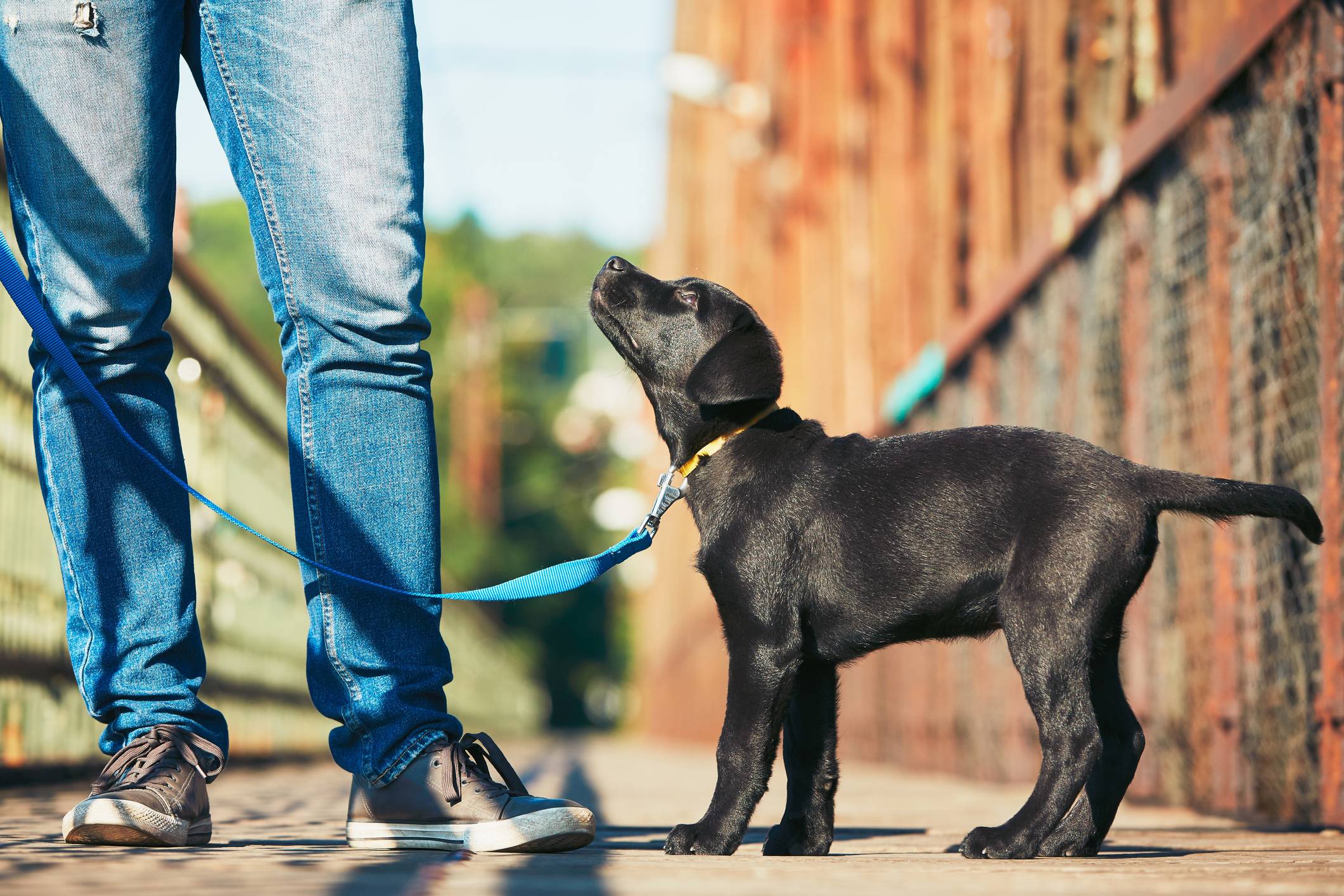
A dog trainer can help you guide your dog and develop a bond with your pet. Round Rock rescue and shelter dogs may qualify for a discount on some services. You may also be able to get individualized attention for any dogs that present a challenge for you and your family. There are many benefits to working with a professional dog trainer, including affordable prices and guaranteed results. You have many options to find a qualified dog trainer in Round Rock.
Karma Dog Training Round Rock uses 100% positive reinforcement training to help you train your pup safely and effectively. The AHA, HSUS SPCA, ASPCA and most Schools of Veterinary Medicine endorse this program. The program is designed to be gentle and safe, and is based on proven behavior principles. It incorporates Jeff’s "Training Without Training” technique, canine communication, and the spiritual aspects of training.

This program has more features than the other. It can deal with a variety behaviors, from low-level reactivity to more complex obedience. Your pet's specific needs can be met with the customized program. You have the option to choose one-on-one or a series 10 sessions to help your dog. You can also choose to board-andtrain your dog. You can use the C.O.R.E. Quick Guide to help you quickly understand the techniques that work best for you and your pet.
Round Rock, Texas is the best place to find a professional dog trainer. There are several locations available, including one in Round Rock. Local dog training companies offer many benefits. A great pet trainer will be able to assess the behavior of your dog and give you suggestions on how to improve it. Online reviews and ratings are the best way to find a top dog training school. If a dog training school has a reputation for providing quality service, then you'll have the peace of mind knowing that your pet's development is in safe hands.
The most experienced dog trainers specialize in one area. These professionals tend to specialize in individual training. But, you can also branch out into a training academy. These facilities train dogs at a specific location. Round Rock can provide a range of training options for dogs. A dog trainer in Roundrock will be able to train your pet in different ways.

Round Rock is home to many dog trainers. There are many local resources available that can help you determine the best choice for your needs. Round Rock's dog trainers offer a variety of services, and are happy to assist your pooch in achieving their goals. A trainer who is experienced in training dogs will be able to provide structure and guidance to their dog, allowing them to concentrate on their job.
FAQ
How long should a dog remain indoors?
Dogs are naturally curious. Dogs are naturally curious and need to be able to vent their curiosity. If they don't have any outlets, they may become destructive. This can lead them to become destructive and cause property damage, as well as injury to other people.
It is important that dogs are kept on a lead when they go outside. They can explore their surroundings safely while being kept in check.
Your dog will be bored and restless if you keep him inside. He will start chewing furniture and other items. He could also develop health problems if his nails grow too long.
It is best to allow your dog to run free at least one day per week to avoid these unfortunate consequences. You can take your dog for a walk in the neighborhood, ride in the car or to the park.
This will give him something to do and help him burn some energy.
What is pet insurance?
Pet Insurance provides financial protection for pets when they are sick or injured. It also covers routine veterinary care such as vaccinations, spaying/neutering, and microchipping.
Additional benefits include emergency treatment in the event your pet becomes ill or is involved in an accident.
There are two types if pet insurance:
-
Catastrophic - This type of insurance pays for medical expenses if your cat suffers serious injuries.
-
Non-catastrophic - This type covers routine veterinary costs, including vaccines, microchips, and spays/neuters.
Some companies offer both catastrophic and non-catastrophic coverage. Others only offer one.
These costs are covered by a monthly payment. The amount of your pet's care depends on what you spend.
The price of insurance depends on which company you choose. Shop around before making a purchase.
Many companies offer discounts for multiple policies.
You can transfer an existing pet insurance plan from another company to a new one.
If you don't want to purchase pet insurance, you will have to pay all the costs yourself.
But there are still ways that you can save money. Ask your veterinarian about discounts.
He might discount you if you bring your pet to see him frequently.
Or, you can find a local animal shelter where you can adopt a pet instead of paying for one.
Remember, no matter what kind of insurance you buy, you must read the fine print carefully.
It will tell you exactly what your coverage is worth. If you don’t understand something, contact an insurer immediately.
What are some things to consider before purchasing an exotic pet
Before you purchase an exotic pet, you should think about these things. You must decide whether you plan to keep the animal or sell it. If you're keeping it as a pet, then make sure you have enough space for it. You also need to know how much time you'll spend caring for the animal. Although it takes time to care and love an animal, it is well worth the effort.
If you plan to sell the animal, then you need to find someone who wants to buy it from you. You must ensure that the person purchasing your animal knows all about taking care of them. Make sure you don't feed your pet too much. This could cause problems for your animal's health later.
You need to thoroughly research exotic pets before buying them. There are many websites that can give information about different species of pets. Be cautious not to fall for scams.
What are the symptoms of a sick dog?
A variety of symptoms may indicate that your dog has a serious illness. Some symptoms are:
-
Vomiting
-
Diarrhea
-
Lethargy
-
Fever
-
Weight loss
-
Appetite decrease
-
Coughing
-
Difficulty with breathing
-
Bleeding from the nose
-
Urine or stool contaminated with blood
These are just a few. Your vet will know what to look out for.
Statistics
- Reimbursement rates vary by insurer, but common rates range from 60% to 100% of your veterinary bill. (usnews.com)
- It's among a relatively few companies that provide policies with a full (100%) coverage option, meaning you are not responsible for any co-payment of bills. (money.com)
- In fact, according to ASPCA, first-year expenses can sum up to nearly $2,000. (petplay.com)
- * Monthly costs are for a 1-year-old female mixed-breed dog and a male domestic shorthair cat less than a year old, respectively, in excellent health residing in Texas, with a $500 annual deductible, $5,000 annual benefit limit, and 90% reimbursement rate. (usnews.com)
- Here's a sobering reality: when you add up vaccinations, health exams, heartworm medications, litter, collars and leashes, food, and grooming, you can expect a bill of at least $1,000 a year, according to SSPCA. (bustle.com)
External Links
How To
The best way to tell a dog where it is appropriate to go to urinate.
It's important to show your pet how to properly use the toilet. You should also know how to train your pet if they go outside alone. These are some things to remember when teaching your dog how to properly use the toilet.
-
Start training early. Get started now to prevent accidents during playtime
-
Use food rewards. You'll have better luck if you reward your pet after every successful trip to the potty.
-
Keep treats out of the areas where your pooch pees. This could lead to your dog identifying urine smell as his favorite treat.
-
Make sure there isn't another animal around before letting your dog out. Dogs may be influenced by the behavior of others who relieve themselves.
-
Be patient. Your puppy might take a bit longer to figure things out than a fully grown adult.
-
Let your dog sniff everything before allowing her to step into the bathroom. She'll learn faster if she gets a chance to familiarize herself with the scent of the toilet first.
-
You should not let your dog use the toilet next to you while you're doing other things. This could cause confusion.
-
Wipe down the toilet seat and floor after you're done. These areas will serve to remind you of what to do the next time.
-
Make sure to clean up all messes as soon as possible. You should immediately clean up an accident. You might have to give him another chance at relieving himself.